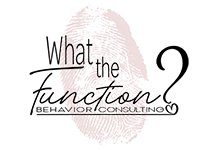
We provide family-based intervention and treatment services for at-risk youth.
We are Board Certified Behavior Analysts (BCBAs) specializing in Intensive Behavior Parent and Family Training for individuals facing charges or on probation with the Juvenile Justice System. We offer family-based interventions for youth at risk of involvement in the system, engaging the entire family in prevention, rehabilitation, and creating a supportive environment for lasting behavior change.
We value Family-focused interventions, an approach which not only focuses on the individual, but also on the family/caregiver system surrounding them.
Experts in Behavioral Analysis
As Board Certified Behavior Analysts (BCBAs), we bring expertise in behavioral assessment, function-based intervention design, family training, and a multi-disciplinary approach. We have extensive experience working with youth with disabilities and challenging behaviors, as well as consulting within schools, courts, and community agencies. This background ensures that our services are evidence-based, trauma-informed, and tailored to meet the unique needs of this high-risk population, ultimately helping to reduce recidivism, improve family outcomes, and promote safer communities.
Intensive Training
We provide Intensive parent and caregiver training to equip families with evidence-based behavior management strategies.
Collaboration
We collaborate with courts, probation officers, detention centers, law enforcement, and other professionals to ensure coordinated, supportive care.
Focus on Prevention
We focus on prevention and skill-building, targeting behaviors that contribute to system involvement, while also building functional life skills and improving family dynamics.
Complex Cases
We offer specialized support for complex cases, including youth with dual diagnoses, trauma histories, and co-occurring mental health needs.
Our Advocacy Process
This service extends our support to teens and adolescents, especially those with disabilities who are at risk of or already involved in the juvenile justice system. It complements our existing family support services by focusing on this underserved group and addressing the unique challenges of managing both behavioral needs and legal involvement.
- We collaborate with teens, parents, and the court system in various ways. Our main focus is on family training and support, providing parents and caregivers with effective tools and strategies to manage challenging behaviors, reduce law enforcement involvement when appropriate, and lower the risk of reoffending.
- When youth are placed in the juvenile justice system (e.g., detention), we continue to work with families and provide consultation within these settings.
- We advocate for families by attending court hearings and meetings with other juvenile service providers as ordered by the court.
- We also provide training and consultation to detention staff, law enforcement, probation officers, prosecutors, and other system partners on effective intervention and rehabilitation strategies for youth with disabilities, promoting a supportive, informed approach that fosters long-term success over punitive measures.

FAQs
Who are our services for?
Teens, adolescents and their caregivers with developmental disabilities and/or behavioral challenges who are already involved or at risk of entering the juvenile justice system.
Do we provide direct 1:1 behavioral therapy?
No, we do not provide 1:1 direct therapy to youth. Instead, we focus on empowering parents, caregivers, and other adults involved with the youth through intensive training and coaching. This approach fosters sustainable, long-term behavior change and ensures skills are applied across various settings (home, school, community). However, some sessions may involve 1:1 time with the juvenile or specific family members at times.
What kinds of behaviors do we address?
We address a wide range of challenging and high-risk behaviors, including but not limited to:
- Aggression
- Property destruction
- Elopement (running away)
- Self-injury
- Non-compliance or defiance
- Risk-taking and delinquent behaviors
- Social and communication skill deficits
Behaviors related to trauma, disabilities, or mental health needs
What does family-focused treatment mean?
We analyze and address such factors as:
- Family dynamics
- Individual and family medical history
- Mental health
- Cognitive impairments
- Socioeconomic status
- Education and employment deficits
- Peer and social circle influences
- Prior/current criminal behaviors (youth/adolescent and family)
How does our service complement your current Family support services?
This service extends our support to teens and adolescents, especially those with disabilities at risk of or already involved in the juvenile justice system. It complements existing family services by focusing on this underserved group and addressing the unique challenges of managing both behavioral needs and legal involvement.
Who do we work with?
- We work directly with teens, parents, and the court system, focusing on family training and support.
- We work with families during juvenile justice system placements (e.g., detention), providing ongoing consultation.
- We advocate for families by attending court hearings and meetings with other juvenile service providers as ordered by the court.
- We work with detention staff, law enforcement, probation officers, prosecutors, and other system partners, providing training and consultation on effective intervention and rehabilitation strategies for youth with disabilities.
